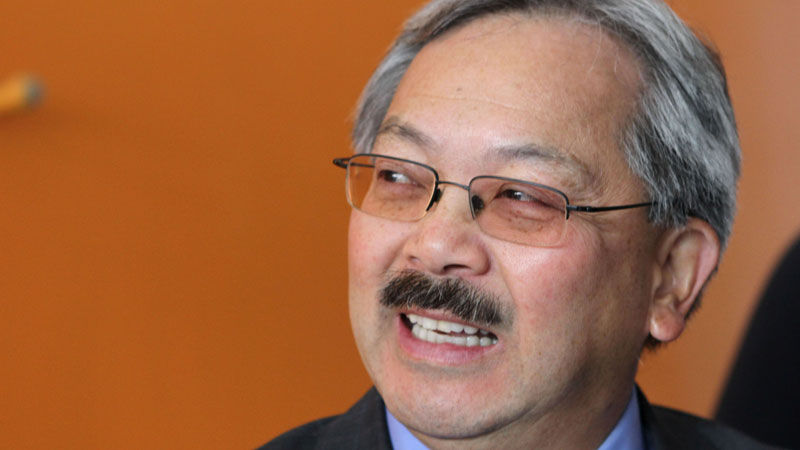San Francisco Mayor Ed Lee joins us to discuss a number of pressing issues facing the city: a housing shortage, growing inequity and allegations of police corruption. We’ll also talk with him about the current controversy over San Francisco’s “sanctuary city” policies, which are receiving national attention after the killing of a woman at Pier 14, allegedly by an undocumented immigrant.
Highlights from Mayor Ed Lee's Comments on the Sanctuary City
Mayor Ed Lee: We have a sanctuary city for the right reasons. I think it was misapplied here by a top law enforcement official. And we need to correct that. How can we really prevent this from happening? You know, the ordinary thing is to look at who had hands on this felon, this repeated serious felony-violator last. And I'm trying to understand the whole picture, from the feds to the local. But I do happen to agree with Senator Feinstein that you look at who had that last responsibility? It was our sheriff. And in that responsibility, you know, it's not about the sanctuary ordinance. The sanctuary ordinance has language in there that says very clearly that nothing shall prohibit communication or engagement of some notification. And when the feds released this person to us, there could have been a notification that we're about to release a repeat serious felony offender, who is not legally here. It's a phone call, Michael, and I think the Sheriff dropped the ball there.
Michael Krasny: You want to hear what the Sheriff had to say on this program yesterday? Let me get your response.
[Audio Clip of Sheriff Ross Mirkarim]): I read the statement by the Mayor, and I think it's essential to note that he signed the law that enabled our local law.
EL: Yeah, so is he reading the entire law? I mean — here, I can read to you this passage from the exact 12H.2 of the ordinance that's called City Sanctuary Ordinance: "Nothing in this chapter shall prohibit or be construed as prohibiting a law enforcement officer from identifying and reporting any adult pursuant to state or federal law who is in custody after being booked for alleged commitment of a felony and suspected of violating the civil provisions of the immigration laws." In other words, it's not a detainer. I don't want to get into this legal mumbo jumbo that all of the immigration lawyers and advocates for sanctuary city are all discussing. This is not about the detainer debate that's going on; it is about simple notification.
